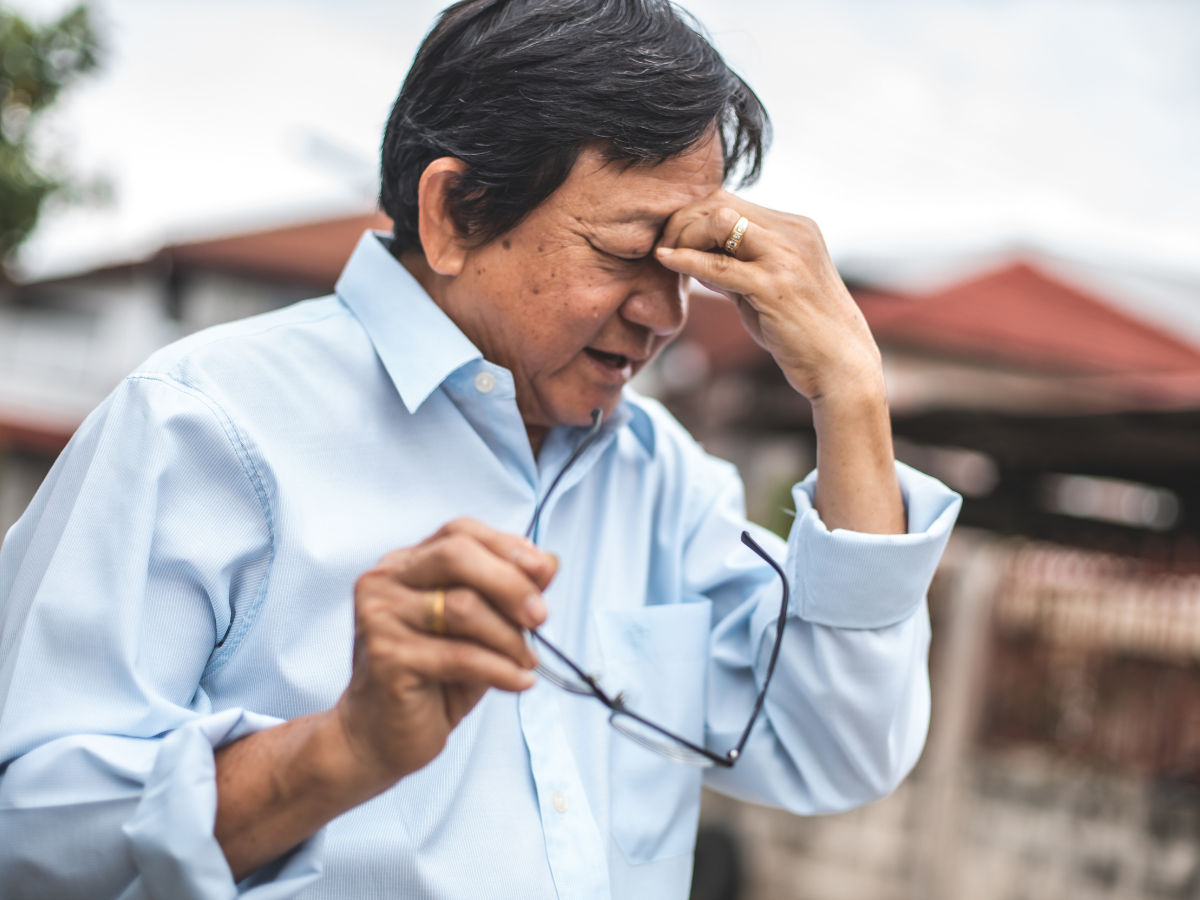Many Filipinos are familiar with how stress can take a physical toll, from restless nights to sudden hair shedding. After weeks of pressure at work or recovering from an illness, some notice extra strands on the pillow or shower floor. The question is: can stress alone make you bald? The short answer is that stress can contribute to hair loss, but it is rarely permanent. With proper care and healthy habits, recovery is not only possible but likely.
Understanding how stress affects the hair growth cycle helps you manage shedding early and prevent long-term thinning.
Can stress really cause hair loss?
Yes. According to the Mayo Clinic, stress can lead to a condition called telogen effluvium, where more hair follicles enter the resting phase than usual. Two to three months later, the hair begins to shed more than normal. This process is temporary, and new growth often starts once the body recovers from physical or emotional strain.
Filipinos recovering from COVID, childbirth, or intense work schedules often experience this kind of shedding. Fortunately, the hair cycle naturally resets as stress levels normalize and overall health improves.
What happens to the hair during stress?
Hair grows in three key stages: growth, rest, and shedding. Stress disrupts this rhythm by increasing cortisol, the body’s primary stress hormone. The National Institutes of Health found that cortisol interferes with the stem cells responsible for follicle renewal, delaying regrowth and contributing to visible thinning.
Chronic stress also reduces blood flow to the scalp, limiting oxygen and nutrient delivery. Over time, this can weaken roots and cause strands to appear dull or brittle. The Cleveland Clinic adds that telogen effluvium often follows illness, childbirth, surgery, or emotional distress, all of which place sudden strain on the body.
In some cases, stress also disrupts hormonal balance. When cortisol rises, estrogen and testosterone may fluctuate, further shortening the hair’s growth phase. This explains why stress-related thinning is common among Filipinos juggling multiple responsibilities or dealing with chronic fatigue.
Which types of stress can cause hair shedding?
-
Emotional stress from anxiety, grief, or burnout
-
Physical stress from surgery, injury, or childbirth
-
Nutritional stress from crash diets or nutrient deficiencies
-
Environmental stress from pollution, poor scalp hygiene, or heat exposure
The Department of Health notes that stress can also affect appetite and sleep, which may disrupt hormone levels and worsen shedding over time.
Filipinos face added challenges from humid weather, long commutes, and city pollution. These environmental stressors can increase oxidative damage to the scalp and weaken follicles. A combination of lifestyle adjustments and gentle hair care can help reduce these triggers.
Is stress-related hair loss permanent?
Most stress-related shedding is temporary. Harvard Health Publishing explains that normal hair growth usually returns within six to nine months after the stressful event passes. However, chronic stress can worsen existing genetic hair loss, such as androgenetic alopecia.
The National Library of Medicine also found that stress may contribute to alopecia areata, an autoimmune condition where the immune system attacks hair follicles. Consulting a dermatologist early can prevent further loss and support recovery.
Certain medications or major hormonal shifts can amplify the effect of stress, which is why medical evaluation is essential when shedding persists.
What are the signs of stress-related hair loss?
Stress-related shedding often appears as diffuse thinning rather than bald patches. You may notice:
-
More hair than usual on your pillow, brush, or shower drain
-
A thinner ponytail or visible scalp lines when styling
-
Slower regrowth or uneven hair lengths
Dermatologists may perform a simple pull test, gently tugging a small section of hair to see how much sheds. Excess shedding may indicate telogen effluvium. Early diagnosis can help confirm whether it is temporary or part of a chronic condition.
How can Filipinos reduce shedding and encourage regrowth?
Healthy routines and lifestyle consistency play a big role in recovery.
-
Eat a nutrient-rich diet. Include lean proteins, leafy vegetables, and iron-rich foods like fish, tofu, and legumes. A Journal of Clinical and Aesthetic Dermatology study highlights that vitamin D and biotin deficiencies can worsen shedding.
-
Get enough sleep. The Philippine Heart Association recommends seven to nine hours per night to regulate cortisol and support circulation.
-
Handle your hair gently. Avoid tight hairstyles, harsh brushing, or excessive use of chemical treatments.
-
Practice relaxation. Meditation, light exercise, and guided breathing, such as those in Uma’s stress management tools, can naturally reduce cortisol levels.
-
Protect from pollution and heat. Cover your hair when outdoors, rinse after long commutes, and use mild shampoos that support scalp balance.
To understand how body chemistry affects regrowth, explore how much hair loss is normal. Managing stress and hormone balance together strengthens the foundation for long-term recovery.
How does nutrition influence stress-related hair loss?
The Department of Health promotes the Pinggang Pinoy model, half vegetables, one fourth protein, and one fourth whole grains. Nutrient deficiencies are among the most common causes of shedding and are fully reversible with better diet quality.
Hydration also plays a part. Dehydration makes hair brittle, so aim for at least eight glasses of water daily. Include hydrating fruits and vegetables like cucumber, papaya, and watermelon.
For practical guidance, read best vitamins for hair growth in the Philippines, which lists local foods that help support stronger regrowth naturally.
If diet alone is not enough, supplements can help. The Food and Drug Administration Philippines reminds consumers to verify registration numbers on all health products and avoid unregulated online sellers.
When should you see a doctor about hair loss?
It is time to consult a healthcare professional if:
-
Hair shedding continues for more than six months despite healthy changes
-
You notice patchy bald spots or scalp irritation
-
Fatigue, weight changes, or hormonal imbalance appear alongside hair loss
The Mayo Clinic suggests early evaluation of thyroid, iron, and hormone levels to determine causes. The National Center for Biotechnology Information emphasizes that early diagnosis supports better outcomes and faster recovery.
If you have been struggling with persistent thinning, learn more about our regrowth page to explore medical and lifestyle-based options made for Filipinos.
Can stress management really reverse hair loss?
Yes, in most cases. Once stress is managed, follicles often return to their normal cycle within several months. Consistent exercise, balanced nutrition, and better sleep all work together to promote healthy hair growth.
Filipinos often find that small routines, such as a morning walk, journaling, or avoiding excess caffeine, make a visible difference over time. Reducing alcohol and smoking also improves circulation and hormone balance, both essential for regrowth.
What is the next step if stress is causing your hair loss?
Stress-related hair loss can feel discouraging, but it is rarely permanent. Addressing both mental and physical triggers allows your scalp to recover naturally. Build a daily routine focused on rest, diet, and mindful care.
If you are ready for personalized support, visit andyou.ph or learn about why Filipino men lose hair earlier and signs of male pattern baldness. These insights, together with professional advice, can help you regain thicker, healthier hair with confidence.

















